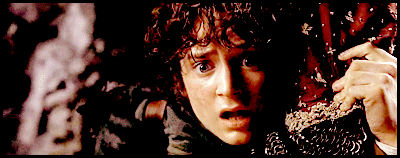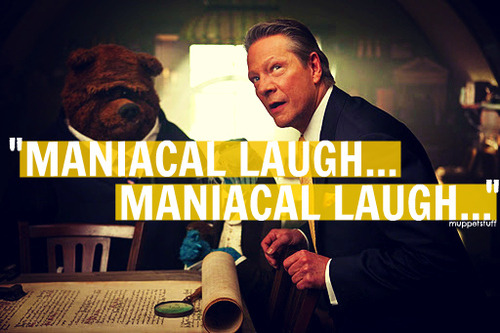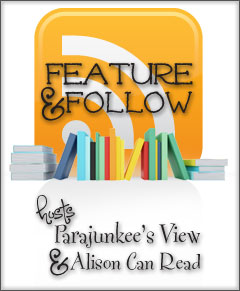Ah, cliffhangers. It seems they are all the rage nowadays, except for the part where most readers* claim to hate them, yet most authors** keep using them to end all their books. Why is that? I doubt it’s because authors hate us. I mean, they need us. And we need them. It’s a symbiotic relationship. So it’s probably unlikely that all our favorite authors are sitting at their laptops, writing the ends of their books, and cackling maniacally, “Take THAT, readers!”
So really, what’s the deal? What is up with all the cliffhanger endings?
Well, first of all, let’s address what a cliffhanger actually is. Because maybe the reason it seems so pervasive is because we’re defining it wrong. So allow me to consult Wikipedia. [Wikipedia wasn’t a thing when I was in high school and college, and therefore I never got to count it as “research” and then get smacked down by my teacher because Wikipedia never counts as research. So I’ll do it now. Feel free to smack me down.]
“A cliffhanger or cliffhanger ending is a plot device in fiction which features a main character in a precarious or difficult dilemma, or confronted with a shocking revelation at the end of an episode of serialized fiction.”
Okay. Going by the Wikipedia definition, a true cliff hanger contains two elements:
1. Must feature the main character.
2. Contains either a precarious dilemma, a difficult dilemma, or a shocking revelation.
Huh. I have a couple problems with that definition. First, “precarious,” “difficult,” and “shocking” are all in the eye of the beholder. What is shocking to one person may be totally predictable to another. For example, I have heard a lot of people talk about the shocking twist at the end of Lauren Oliver’s Pandemonium, whereas I thought that ending was pretty obvious (for the record, I still loved the book). But then others talked about the predictability of the end of Veronica Roth’s Insurgent, while I kept guessing.
Second, just because a book ends on a shocking revelation doesn’t, in my opinion, make it a cliffhanger. A great example would be The False Prince by Jennifer Nielsen, which ends with a huge revelation. But, although the book is the start of a trilogy, it actually resolves its plot arcs pretty neatly. As a matter of fact, the big reveal helps resolve the plot arcs. Yes, there is definitely room for a sequel, but not because of a cliffhanger ending. There’s just more story to be explored.
So, thanks for nothing, Wikipedia. I guess that’s why I’m not supposed to cite you as research.
Having wasted some time down that rabbit hole, let’s get to what I consider a cliffhanger. It’s simple really. I would view a cliffhanger ending as one where a big question is left unanswered. A lot of times, the way this is done is the main plot arc of the book will be resolved, but a new arc will be introduced in the last few pages. I find that second books in trilogies do this a lot. Catching Fire, Timepiece, and Crown of Embers all resolve the main conflicts and questions of their stories, then end by asking another. I actually like this kind of cliffhanger. It leaves me satisfied, but still invested in wanting to find out what happens in the next book.
However, some books pose their unanswered question at the beginning. For example, in The Selection by Kiera Cass, the fundamental question that drives the entire book is “Who will America end up with?” And when the last page is turned, we are no closer to the answer to that question than we were 300 pages before. I’d consider that a cliffhanger, even though there’s no big twisty event at the end that leaves me at the edge of my seat. Other books where I felt a big question posed early in the book was left still unanswered by the end were The Knife of Never Letting Go by Patrick Ness, and Defiance by C.J. Redwine. (Edit: The more I think about this, the more Defiance falls somewhere between the two kinds of cliffhangers, which makes it a bad illustration.)
Here’s the thing about those sorts of books (which, coincidentally, are all the first books in trilogies. Hmmm…). I actually really enjoyed and highly recommend all of those books, but my main complaint with all three is that the ending left me unsatisfied. I felt like I’d invested a good amount of time in a question that was left open-ended. Now, I think in some cases, it’s the author’s intent to leave the reader frustrated (The Knife of Never Letting Go would be the obvious example here). I think that’s the emotional response we’re supposed to have, and the one we’re supposed to carry into the beginning of the next book. But that doesn’t help the feeling that I just read an incomplete book. That the ending wasn’t an ending; the book just stopped. This kind of cliffhanger doesn’t necessarily introduce a new dilemma or revelation at all; it just lacks resolution to a pre-existing conflict.
Then we get to the non-cliffhangers. The books where there is definitely still more story left to tell, but there aren’t any huge questions or dilemmas left open-ended. These books are, in my opinion, often mislabeled as having a cliffhanger ending, because the series arc is not resolved. However, the thing that sets these books apart from cliffhanger books like Catching Fire is that the conflict of that book is wrapped up and no new conflict is introduced at the end.
For example, the first three Harry Potter books all have room for more story. But if you look at Sorcerer’s Stone, it wraps up all its conflicts neatly and don’t leave you with a burning need to find out what happens after the end. Sure, I still was wondering what would ultimately happen with Voldemort, but Harry defeated the bad guy, we found out what his motivations were, and then he goes back to his aunt and uncle’s house, bringing closure to the internal arcs of that book. Not a cliffhanger, in my opinion, despite Voldemort still being out in the world somewhere.
But honestly, is there any book or series where all the questions are answered at the end? Again, take Harry Potter. At the end of the last book, she resolves the multi-book conflict, deals conclusively with the fate of Harry and Voldemort, and even gives us an epilogue letting us know what happens to the main characters afterwards. And there are still fans saying she didn’t wrap up the story enough. (What happened to Luna? And George?) Or Mockingjay. Same deal — we find out what happens to Katniss, which guy she chooses, and the fallout of the revolution. And again, there’s an epilogue, but people still have questions. (How did they fall in love? What happened to the other guy? What does the political system look like now?)
So what’s the point in all this? I think it’s kind of impossible for an author to wrap up every single character’s story in a detailed way, unless they all die or there is only one character. And really, who wants to read only books where everyone dies or there’s only one character? Not me.
I think cliffhangers can be useful as a storytelling device, but would prefer that they be an introduction of a new conflict after resolving the old ones, as opposed to the failure to resolve existing conflict. And I think they can be helpful to keep you invested in a series, but aren’t necessary.
I also think, much like with love triangles, that cliffhangers are less common than we think they are. And that sometimes questions are okay, because they help immerse you in the story. And getting immersed in a story is a good thing.
So discuss. What are your feelings on cliffhangers? Like them, hate them, think they’re overused? Let me know your thoughts. I’m ready to listen.
*my subjective analysis of the people in my Twitter feed whose updates I actually read.
**my general feeling based on books I’ve read recently.









